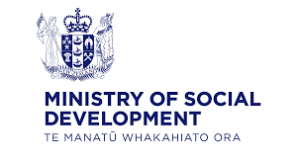FV Report Summary
By Parentline, 31 March 2011
Efforts to Eliminate Violence Against Women 2008 Report
Over the last decade, New Zealand has made significant efforts to address an acute social problem-violence against women. In New Zealand, it is estimated that one in three women has been a victim of domestic violence. In an effort to combat the problem, New Zealand has enacted legislation and regulations which aim to prevent and eliminate domestic violence. It has also created visible public education campaigns calling upon people to stop “family violence” as it is called in New Zealand. As a result, domestic violence is no longer circumscribed to the private sphere and it is not difficult to strike up a conversation on the issue. Nonetheless, the levels of domestic violence remain surprisingly high. Domestic violence affects all segments of the population and all ethnicities in New Zealand, however, the prevalence rates within Maori communities are even higher than the rates for the general population.
The prevalence of violence against women persists despite New Zealand’s commitments under international law to secure equality for women, act with due diligence to prevent, investigate or punish acts of domestic violence and provide for effective remedies to the victims of domestic violence. New Zealand has signed and ratified the U.N. Charter, the Universal Declaration of Human Rights, the International Covenant on Civil and Political Rights, and the International Covenant on Economic, Social, and Cultural Rights. While none of these treaties expressly addresses domestic violence, they each prohibit discrimination on the basis of sex. New Zealand has also signed and ratified the Convention on the Elimination of All Forms of Discrimination Against Women (“CEDAW”), which imposes more specific obligations on states to ensure women’s equality.
This Report represents the culmination of a year-long project undertaken by the Leitner Center for International Law and Justice at Fordham Law School to study violence against women in New Zealand in light of these international commitments. Violence against women, and domestic violence in particular, is a serious issue that has received a great deal of attention internationally over the last few decades. However, patterns of violence persist in both developed and developing countries, undermining the status and rights of women, and damaging the lives of women and children who are exposed to these situations. We acknowledge that the Labour-led coalition government in power from 1998-2008 in New Zealand made deliberate efforts to combat this problem. We maintain, however, that more can-and ought to-be done.
The Fordham delegation was led by Professors Jeanmarie Fenrich, Paolo Galizzi, and Chi Mgbako, and the 2007-08 Crowley Fellow in International Human Rights, Jorge Contesse, and included eight second-year law students, Justin Bernstein, Annie Chen, Abisola Fatade, Michelle Magbalon, Mani Mostofi, Sarah Stevenson, Anupama Sawkar and Emily Wei, and the Leitner Center’s Program Assistant, Elizabeth Mooers. Prior to the on-the-ground study, the delegation participated in an intense program of study throughout the academic year, including a seminar on human rights in New Zealand led by Mr. Contesse and Professors Jeanmarie Fenrich and Tracy Higgins. While in New Zealand, the delegation met with lawyers, judges, legislators, government officials, academics, local leaders, and ordinary women and men from Aotearoa / New Zealand. The delegation conducted approximately 165 interviews in all.
This Report presents the findings of this research effort. It consists of three parts. Part I sets out the normative framework on domestic violence, both at the international and national level, and explains the relevant norms that govern the relationship between Maori and the Crown. Part II begins with a background discussion regarding the level of domestic violence in New Zealand. It then proceeds to detail the problems with the domestic law and implementing regulations addressing domestic violence — both with the law as written and problems with the law and regulations as implemented or enforced, the “implementation gaps.” Part II presents the delegation’s findings with respect to a range of problems women face when they are victims (and/or survivors) of domestic violence. Similarly, Part II documents the problems activists and workers face when they address these situations. Some of these problems relate to the existing law or government policy whereas others have to do with the way the law and policy has been implemented-or not implemented. Finally, Part III addresses domestic violence in Maori communities. While many of the problems presented in Part II also apply to Maori, this Part discusses some issues that affect Maori in particular. Both Parts II and III offer recommendations designed to address the documented problems. During the course of our research, the New Zealand government has apparently decided to adopt a number of modifications to the existing legislation and policies addressing domestic violence. We commend the government for its willingness to make necessary modifications and join the government in hoping that these changes will help reduce and ultimately eliminate violence against women.
Read “It’s not OK”: New Zealand’s Efforts to Eliminate Violence Against Women









